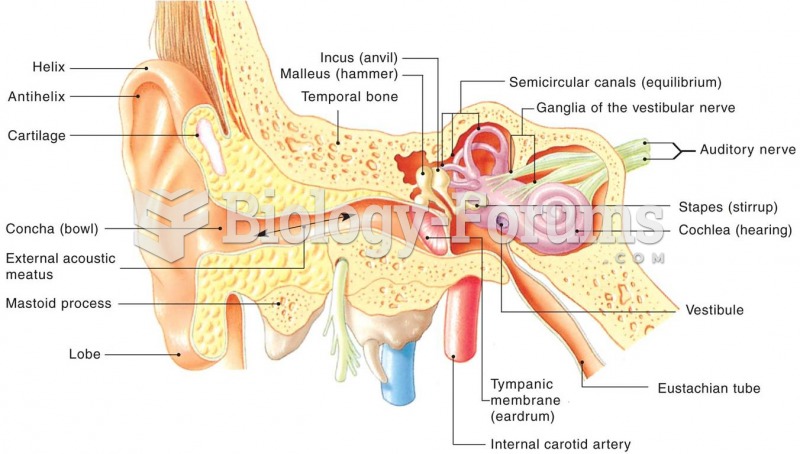|
|
|
Human stomach acid is strong enough to dissolve small pieces of metal such as razor blades or staples.
Drugs are in development that may cure asthma and hay fever once and for all. They target leukotrienes, which are known to cause tightening of the air passages in the lungs and increase mucus productions in nasal passages.
There are over 65,000 known species of protozoa. About 10,000 species are parasitic.
People with high total cholesterol have about two times the risk for heart disease as people with ideal levels.
Before a vaccine is licensed in the USA, the Food and Drug Administration (FDA) reviews it for safety and effectiveness. The CDC then reviews all studies again, as well as the American Academy of Pediatrics and the American Academy of Family Physicians. Every lot of vaccine is tested before administration to the public, and the FDA regularly inspects vaccine manufacturers' facilities.







